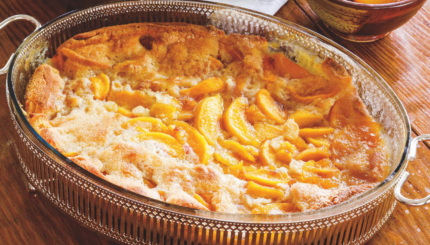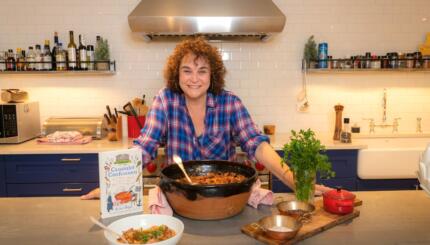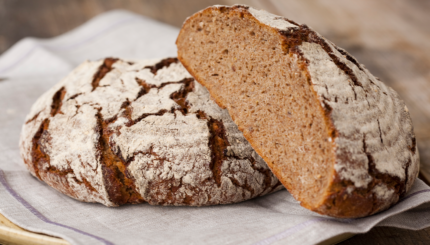Celiac disease and gluten intolerances have been ignored and under-diagnosed for years, but these days it’s hard to miss. Labs have seen a jump in requests for blood tests and it is now estimated that somewhere around 18 million Americans are sensitive to gluten.
Gluten is an insoluble protein in wheat, rye, and barley, among others. Because it is somewhat elastic, it helps to leaven and build structure in baked goods. It’s also hard for the human digestive system to handle. For most people, their bodies persevere and move on with their days, but for others eating or coming in contact with gluten can have a major impact.
Gluten intolerance is a toxic, negative reaction to gluten. It can often be dealt with through slight avoidance, indulging on occasion and not being stringent about gluten in non-food products like toothpaste and paint. Celiac, on the other hand, is an autoimmune disorder, in which the body builds up antibodies against gluten every time the person comes in contact with the protein. After a while, the intestinal villi are destroyed and become incapable of absorbing nutrients, which leads to blood toxicity. In short: if you think you might have a gluten intolerance, it’s a good idea to check it out before it gets out of hand. While many people have jumped on the gluten-free bandwagon as a fad, those who actually suffer from gluten experience a wide range of serious symptoms.
People often are nervous about making food for friends who can’t eat gluten and while it’s true that the diet can be challenging and expensive, it doesn’t have to be so far from the food you are used to. Many who switch to gluten-free lifestyles actually eat healthier, because they make more room in their diets for vegetables, fruits, and wholesome foods. Try the recipe below for a great granola that happens to be “GF”–just make sure to buy gluten free oats for those who have severe sensitivity.
The Nosher celebrates the traditions and recipes that have brought Jews together for centuries. Donate today to keep The Nosher's stories and recipes accessible to all.
If you’re looking for a new challenge as a baker, pulling off a tasty gluten-free treat is rewarding and much appreciated by people who don’t eat gluten. There are so many incredible whole grain and legume flours out there to experiment with–make this your excuse! Keep in mind that without gluten, breads will need more yeast, eggs are crucial for binding, and you may need more fat or fruit puree to keep it moist. Make sure you eat or freeze your baked goods right away, since gluten-free items have a short shelf life and lose moisture quickly.
Resources to check out:
The Gluten Free Gourmet by Betty Hagman
Gluten Free Baking by Rebecca Reilly
Gluten Free Girl and the Chef by Shana James Ahern
Ingredients
4 cups rolled oats
1/2 cup walnut pieces
1/2 cup unsalted raw almonds, roughly chopped
1/2 cup Grade A maple syrup
1 spoonful raw honey
2 tablespoons coconut oil, melted
1/2 cup raisins
1/4 cup dried apricots, cut in strips
1/4 cup dried medjool dates, roughly chopped
Directions
Preheat the oven to 375° Farenheit.
Mix oats and nuts in a large mixing bowl.
In a separate, smaller bowl, whisk maple syrup, honey, and coconut oil. Pour over oat mixture and mix until evenly coated.
Spread mixture onto a full sheet pan (or two half sheet pans) in an even layer.
Put the tray in the oven and check regularly, stirring the oat mixture to avoid burning. Remove when golden brown, about 20-25 minutes. The granola will not be hard at this point–that happens as it cools.
When the mixture has cooled a little, fold in dried fruit. When completely cooled, store in an airtight container.


